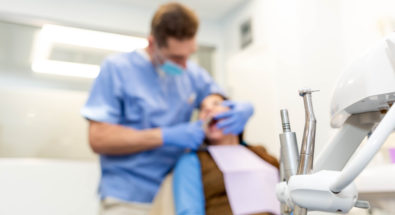5 Reasons Bone Grafting Is Beneficial For Oral Surgery
Losing teeth not only impacts your physical health, but it also affects your mental health including your self-confidence and overall happiness. Dental implants are the most effective replacement for your missing tooth or multiple teeth. Bone grafting is essential to implant surgery because in some cases, it is necessary to prepare your mouth for a dental implant. The dental implant is a titanium screw that requires enough bone to support the implant. Your oral and maxillofacial surgeon may recommend adding a bone graft before your implant or during your implant surgery, especially if your bone is gone (resorbed).
Here is how bone grafting works:
How Bone Grafting Is Performed
When you lose teeth, your jaw bone begins to lose the stimulus that kept it strong and durable. The bone that supports your teeth is called the alveolar bone. Losing teeth substantially speeds up the deterioration of your alveolar bone. Regardless of your age and how you lost your teeth (i.e. sports injury, natural causes, etc.) your jaw bone relies on each tooth to provide it with its strength. Therefore, neglecting to replace even one tooth will result in adverse effects for your oral health.
Your oral and maxillofacial surgeon will begin the operation by making a small incision in your gums over the destined implant location. The variations for bone grafting include using fragments of your own bone (autograft), using man-made synthetic bone or bones from animals (xenograft) or other people (allograft). Your surgeon will screw the bone graft to your jaw or build up the bone graft and secure it with a resorbable or non-resorbable membrane to protect it. Then the area will be stitched over. You won’t feel any pain because you will be sedated for the procedure.
When it is demonstrated that your body has accepted the bone graft, eventually your body will begin producing bone cells which will support the bone graft.
Reasons to Have Bone Graft Surgery
Tooth Loss
As previously stated, losing any of your teeth is reason enough to inquire about the possibility of a bone graft. Often when the tooth is extracted, your oral and maxillofacial surgeon will add bone right away to preserve your alveolar bone so that it does not resorb away for your future implant. There are multiple options available to you upon losing teeth, so be sure to visit our office for an educated recommendation about what you should do in your current condition.
Diminished Jawbone
When your jawbone diminishes due to the lack of stimulation from your missing teeth, it can cause damage to the aesthetic of your face. A deteriorating jawbone can make your face appear as though it is indented or depressed. You want to keep the shape of your face as it is and therefore bone grafting is the perfect solution for retaining your faces contour.
Furthermore, the more bone loss there is, the more difficult it is to build up the bone for future restorations such as an implant-supported denture.
You’re Going to Receive Dental Implants
Dental implants require a healthy and robust jawbone to help secure them into place. Without a bone graft to resupply your jawbone with the needed firmness to accept a dental implant, you may be unable to replace a missing tooth or multiple teeth.
Required for Dentures
Healthy and strong teeth are not a given for the rest of your life, and many seniors either due to habits (i.e. excessive smoking, drinking, lack of brushing/flossing, etc.) tend to lose their teeth more frequently than young kids. For seniors looking to be fitted for dentures, they will need to have a strong and healthy jawbone to ensure the dentures are secured and do not shift while in their mouths.
You Suffer from Periodontal Disease
Periodontal disease, which is also known as gum disease, can erode your jaw bone causing your teeth to shift or completely fall out. Bone grafting will ensure that your jawbone is rejuvenated so that the rest of your teeth can remain in good health.

